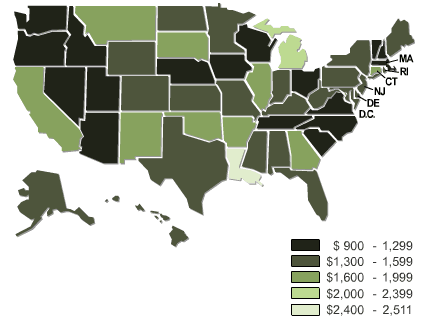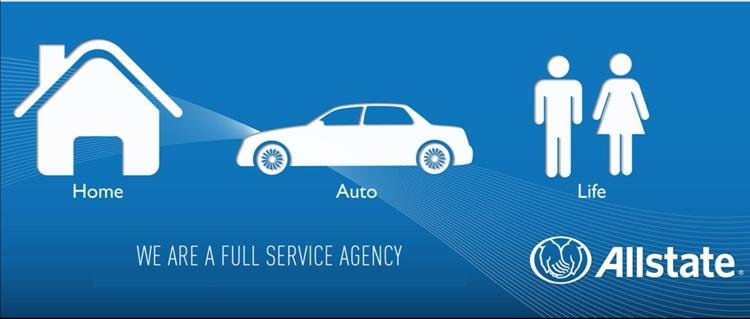Porsche 928: Insurance Guide
Insurance is required to drive your car almost everywhere in the world. No proof of insurance, no 928 cruising. Read up on how to cover best interests when it's insurance shopping time.
This article applies to the Porsche 928 (1979-1995).
Simply put, insurance is not a one-size-fits-all situation; it's as customizable as your ride itself. While you may have little to no control over the types of coverage required in the state where you live, knowing the discounts available to you can reduce your rate as can being a safe driver, driving under a certain number of miles each year, and being older than 25. Before signing on the dotted line, keep the following information in mind. It may just save you a bundle in the long run.
Where You Live Matters
Geographic factors affect how much you pay for car insurance. Drivers in states at risk for hurricanes or other natural disasters pay more than others, while living in a state where a number of uninsured motorists are known to drive also affects your rates. According to the National Association of Car Insurance Commissioners, drivers in Alaska, Connecticut, Delaware, Florida, Louisiana, Maryland, Michigan, Nevada, New Jersey, New York, Rhode Island, and Texas pay more than drivers elsewhere in the country. If you live in Idaho, Iowa, Maine, and Wisconsin, you'll pay the least to insure your car compared to any other state in the country.

Shop Around
You'll likely get the best rate by shopping around. How much you'll pay to insure your car with State Farm can be more or less than you'll pay with Geico or Allstate, depending on each company's approach to insuring Porsches. A survey of Porsche owners found that State Farm, Geico, Allstate, and Farmers offered the most competitive rates, but this also depends on the state where you live.
Your 928 may qualify for classic car insurance. If you have multiple vehicles, in addition to the 928, then you may want to investigate Hagerty, Grundy, or JC Taylor insurance; they are a series of insurers that work specifically with expensive, exotic, or classic cars.

Qualify for Discounts
The main way you can save money on your car insurance is by asking about – and qualifying for – discounts. Most insurance companies offer lower car insurance rates to people who have more than one policy with them. For example, Allstate offers lower rates to holders of multiple policies. Good drivers qualify for lower rates as do safe drivers. Some insurance companies offer lower rates for owners of cars that have passive-restraint systems like airbags and motorized seatbelts, anti-lock brakes, and anti-theft devices. Don't count on these features resulting in a big discount, though. According to Automobile.com, even though your Porsche comes with a number of key safety features, these features do "next to nothing to bring down the amount that you'll have to pay to insure one." Some insurance companies also offer discounts to seniors and students, and also to drivers who drive fewer than a certain number of miles. In Florida, for example, State Farm offers this low-mileage discount to people who drive fewer than 7,500 miles a year.

Common Questions
Do I need to insure my car?
Legally, you must insure your car. In fact, some states won't let you register a car that isn't insured. Of course, it's not like your car stops working the day you let your insurance policy lapse or decide not to insure you car. But the cost of insuring your car, no matter what it is, is likely far less than the cost of replacing your car if you're in an accident and are found at-fault. Also, keep in mind that in the event you're found at fault in an accident, you may also be responsible to pay to fix the other driver's (or drivers', depending on the number of cars involved) car(s).
What affects my insurance rate?
Your age and gender affect your insurance rates, with men between the ages of 16 and 25 generally paying the most. Being found at fault for one or more accidents during the five years preceding your application for insurance affects your rate, as does being found guilty of driving while intoxicated or under the influence. Having to surrender your license at any point in your driving history affects your rate as does the number of miles you drive each year.
Is classic car insurance right for me?
Classic car insurance refers to a specific type of policy catered towards classic vehicles (25+ years old). Most classic car policies have extreme stipulations about what cars qualify and the terms of insurance. Things like mileage restrictions are the norm, and don't be surprised if some additional stipulations include guaranteeing to not drive the car in inclement weather. The upsides to a classic car policy often lie in the largely decreased premiums due to the vehicle being low-use and low-risk. Also, many of these policies work on a "declared value" clause, where the declared value of your vehicle is established up front as what your insurer would pay out if the vehicle is determined to be a total loss.
How much insurance should I buy?
Some states require you to carry specific levels of coverage. For example, you may need to carry comprehensive and collision coverage, so any insurance company you go to will require you to have at least the minimum amount of these types of coverage. An insurance agent will tell you how much you can customize your policy. Deciding not to carry fire and theft coverage may save you a few hundred dollars during a 12-month period, but before opting out, consider how much you may have to pay out of pocket in the event either of these things occur.
Related Discussions
- 928 Hagerty Quote - Rennlist.com
- 928 Insurance Info Thread - Rennlist.com
- Latest Update on 928 Insurance? - Rennlist.com
- Hagerty or Grundy Insurance - Rennlist.com
- Stipulations of Classic Car Insurance - Rennlist.com
- JC Taylor Classic Car Insurance - Rennlist.com






